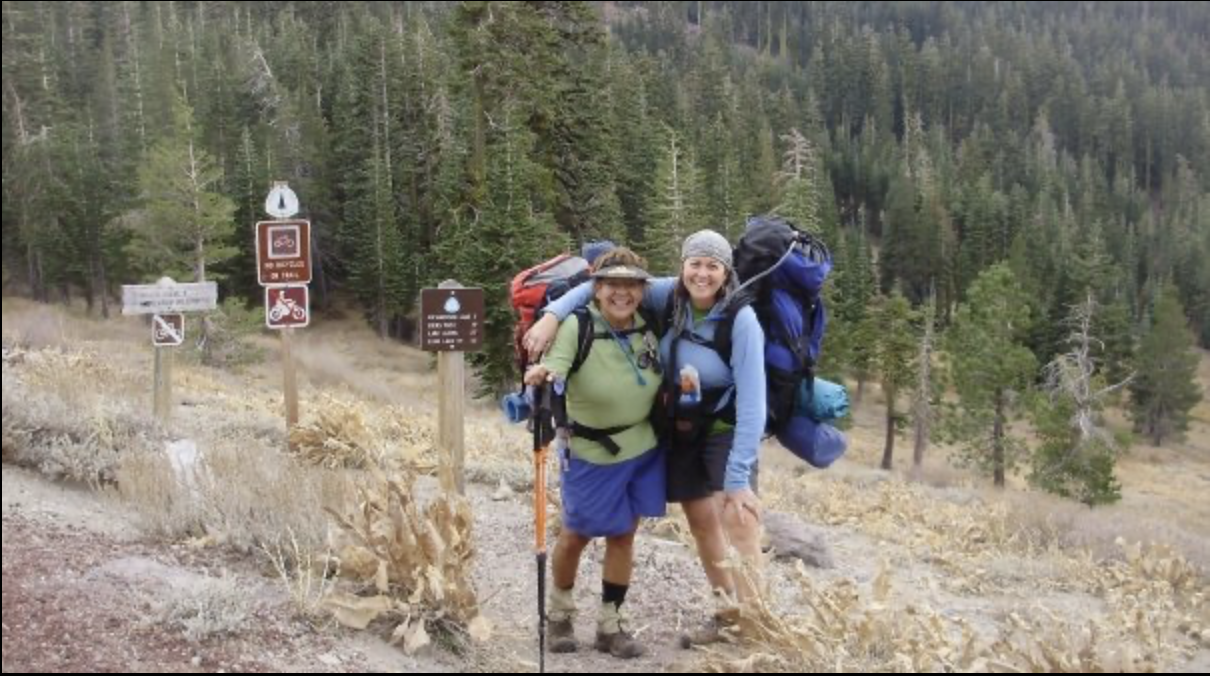
It All Began with a Friendship Along a Hiking Trail
_____________________
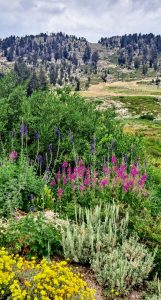 I live in the beautiful Sierra Nevada mountains in Northern Nevada, outside of Reno. I moved to Reno in 1980 and was married a few years later.
I live in the beautiful Sierra Nevada mountains in Northern Nevada, outside of Reno. I moved to Reno in 1980 and was married a few years later.
My husband and I started a successful business together and had two kids, Andrew, now 37, and Sami, 35. Seventeen years into the marriage, my husband wanted to end it. I was crushed. He wanted to keep the impended divorce a secret. Divorce was bad for the "mom-and-pop" image—there was money to be made over the Christmas season. I carried the silent burden for months but needed a private place, away from family and friends, to feel the pain.
The trails in the nearby mountains and foothills became that place. I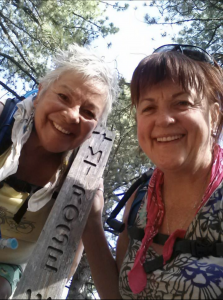 retreated with my dog for an hour or two each day. I ached, prayed, cried, and worried. One Saturday morning in 2001, my husband had been particularly contemptuous. I didn't want to go home. When I got to the bottom of the trail, there was another hiker just starting out. I had seen her several times before. She, too, had noticed me.
retreated with my dog for an hour or two each day. I ached, prayed, cried, and worried. One Saturday morning in 2001, my husband had been particularly contemptuous. I didn't want to go home. When I got to the bottom of the trail, there was another hiker just starting out. I had seen her several times before. She, too, had noticed me.
That Saturday morning, I asked, "Do you mind if I turn around and walk with you for a while?" Her cheerful voice responded, "Sure!" That began weekly hiking meet-ups with Netto Montoya.
I suspected from the start that she might be a lesbian. Oh, there were many little signs, from her word choices to the cluster of rainbow rings hanging from the interior car mirror.
I was deep in my evangelical world. I homeschooled my kids, led Bible studies, and had weekly dinners at my home, gathering different members of the flock together. We all knew homosexuality was sinful, not that we ever talked about it or even did deep studies on it. We just knew. We were told of the horrors, and we believed.
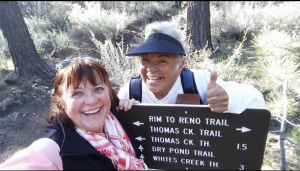 Netto and I became quick and comfortable weekly hiking friends. It is still an enigma to me how we managed to navigate around her mysterious sexuality and my "she-must-change-and-come-to-Jesus" evangelicalism. Yet, we did.
Netto and I became quick and comfortable weekly hiking friends. It is still an enigma to me how we managed to navigate around her mysterious sexuality and my "she-must-change-and-come-to-Jesus" evangelicalism. Yet, we did.
Netto is unlike me. She is a Native American (from the Cochiti Pueblo of New Mexico), has a Hispanic last name, is a woman of color, is a lesbian, and was agnostic. Yet, she became a safe place to process the marital disappointment and fears I could not share in my faith circles. Many of you will know what I mean. Often, prayer requests become fuel for gossip. I couldn't risk it. I had been "instructed" by my husband to keep it all a secret for the sake of business profitability.
A year later, Netto came out to me on one of our regular Saturday morning hikes. Her former partner had died unexpectedly. Netto had after-life questions. By then, I loved her and trusted her, and she loved and trusted me. We could finally speak openly. I got to know the part of her sh that she had hidden from me over the past year.
Our friends created interesting dynamics on our periphery. My Christian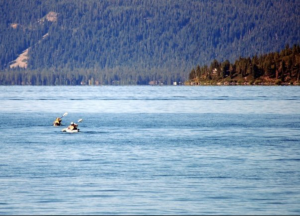 friends insisted that I "fix" and "save" her. Her friends wondered why she was hanging out with a Christian.
friends insisted that I "fix" and "save" her. Her friends wondered why she was hanging out with a Christian.
Christians were the source and symbol of oppression and hatred toward the LGBTQ community. When we interacted in each other's circles, there was suspicion from both sides.
I decided to merge the groups intentionally. Monthly "Girl Party" at my house mingled lesbians and Christian straight women. For the most part, it was smooth, but there were many tense moments too. We kept at it.
When I started to become more vocal about my views on inclusion and equality, the majority of my Christian friends and my home church felt uncomfortable with me. I kept at it.
Her friends challenged her; my friends challenged me. Yet, Netto was the most consistent friend in my life through all the losses and changes.
Without knowing it, I was on my way to becoming an activist.
I could plainly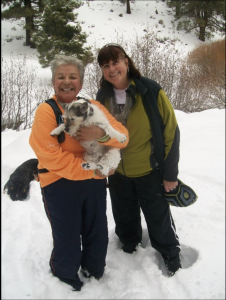 see how the conservative Christian church treated the LGBTQ community. I loved Netto and could not imagine that God did not love her but for the sole reason of her orientation. Then, I did what Christians, unfortunately, rarely do. I began to re-examine the biblical assumptions about sexuality that I had been taught and held.
see how the conservative Christian church treated the LGBTQ community. I loved Netto and could not imagine that God did not love her but for the sole reason of her orientation. Then, I did what Christians, unfortunately, rarely do. I began to re-examine the biblical assumptions about sexuality that I had been taught and held.
In December 2007, I read an article on the front page of the New York Times about Justin Lee and the Gay Christian Network (GCN). I called Justin on the phone. A month later, I was at the GCN conference in Seattle. I wanted to "see gay Christians," I could not imagine that they existed. What I saw and experienced at the conference was pivotal. I could not unsee what I saw—gay people worshipping and loving God.
[Insert years with lots of pushback from pastors, church leaders, and friends.]
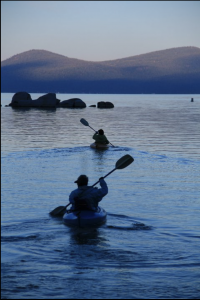 And here I am today, a Christian activist for justice and the inclusion of LGBTQ people in the church.
And here I am today, a Christian activist for justice and the inclusion of LGBTQ people in the church.
The process began on a hiking trail with Netto Montoya. We've forged a deep and trusting relationship over thousands of miles and hours on trails, kayaking, traveling, and doing life together.
Twenty years ago, it was rare and brave for the two of us to step outside our comfort zones and become friends.
Over the past decade, I've created resources, including Walking the Bridgeless Canyon, so that others can challenge their assumptions and possibly come to a more inclusive stance themselves.
With co-researcher Ed Oxford, I've made some groundbreaking discoveries about the first time the word "homosexual" was used in the Bible. I'm writing my second book, Forging a Sacred Weapon: How the Bible became Anti-Gay, due in 2023.
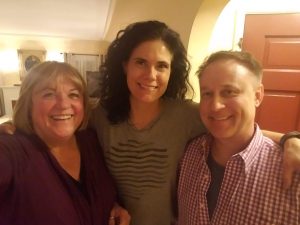 When Ed and I first began to present our findings in 2017 publically, Rocky Roggio was in the audience with her non-affirming evangelical pastor father, Sal. Rocky knew the information she heard was groundbreaking and potentially impactful. She asked if she could make a documentary centered on our work. We agreed.
When Ed and I first began to present our findings in 2017 publically, Rocky Roggio was in the audience with her non-affirming evangelical pastor father, Sal. Rocky knew the information she heard was groundbreaking and potentially impactful. She asked if she could make a documentary centered on our work. We agreed.
This weekend, 1946: The MIstranslation that Shifted a Culture will be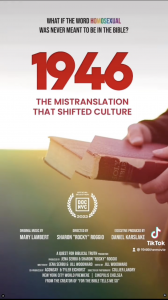 premiering at the DOC NYC film festival. It's a good film, and it will be impactful. The combination of Forging a Sacred Weapon and 1946 will help shift conversations in churches toward justice and inclusion.
premiering at the DOC NYC film festival. It's a good film, and it will be impactful. The combination of Forging a Sacred Weapon and 1946 will help shift conversations in churches toward justice and inclusion.
All this good began with one relationship over twenty years ago.
Who could have imagined the outcome of two women chancing an unusual friendship? I am grateful that she allowed me to journey with her along thousands of miles of trails and stories. Viewers of the documentary will see her prominently featured in the film.
She is the starting place of activism in my life. I am grateful that Netto Montoya trusted me with her story and her friendship.
*************************
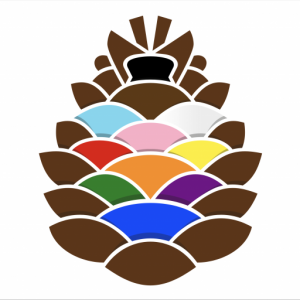 If you would like to support the work of Canyonwalker Connections in the final push, we would appreciate it. Donate HERE.
If you would like to support the work of Canyonwalker Connections in the final push, we would appreciate it. Donate HERE.
You can preorder Forging a Sacred Weapon: How the Bible became Anti-Gay HERE.

